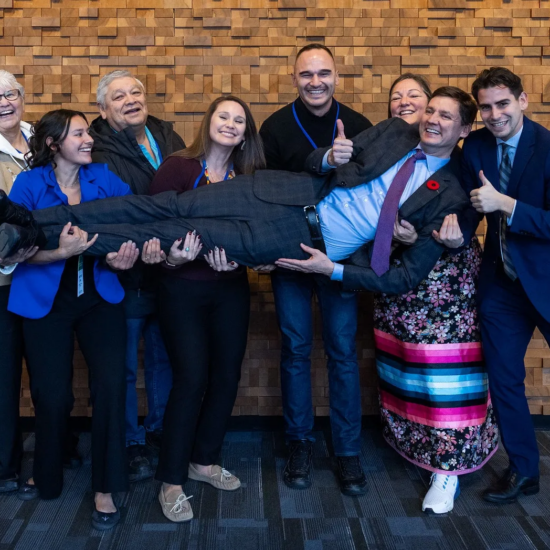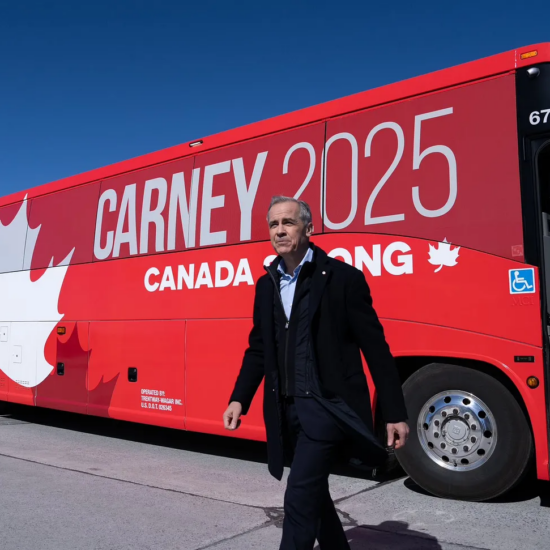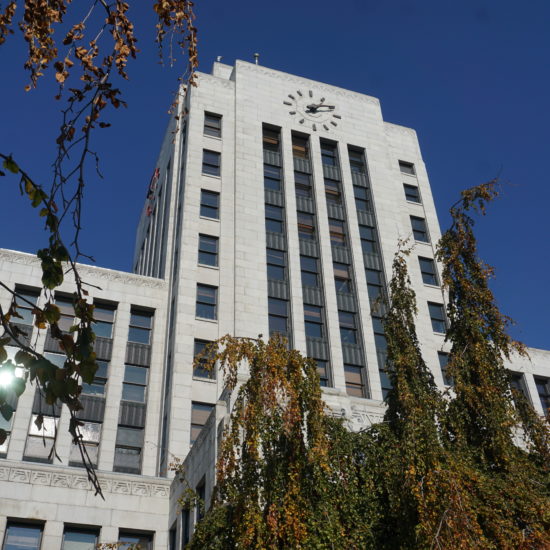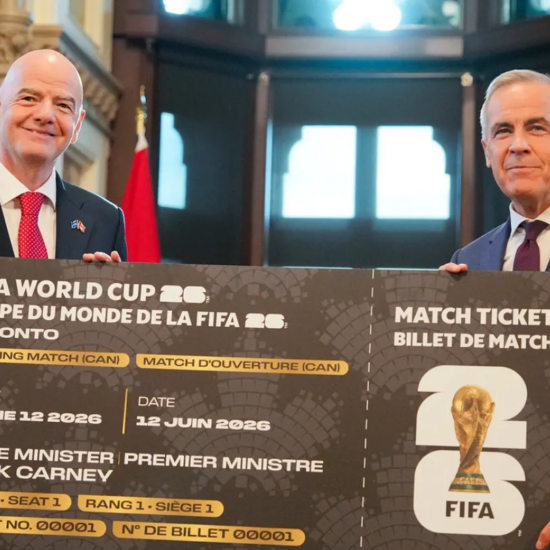
Bob Mackin
Uncertainty in the last provincial budget before the scheduled October election, about how much hosting 2026 FIFA World Cup matches will cost taxpayers.
The service plans for B.C. Pavilion Corporation (PavCo) and the Ministry of Tourism, Arts, Culture and Sport (TAC), released with the Feb. 22 NDP government budget, do not include any hard numbers for the province’s biggest event since the Vancouver 2010 Winter Olympics.
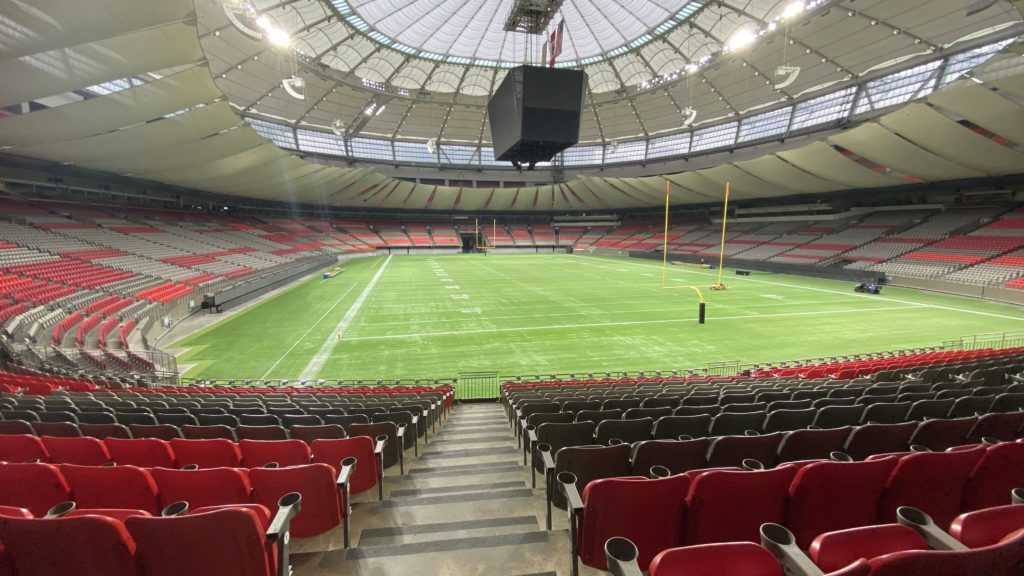
Inside B.C. Place Stadium (Mackin)
The province said last year that the City of Vancouver would spend $230 million and gave it authority to charge a 2.5 percent accommodation tax until 2030. But PavCo is planning renovations to B.C. Place Stadium, which is expecting to lose $11.6 million in the 2024-2025 fiscal year. The province and city hall are both withholding contracts with FIFA.
There is only one reference to FIFA 2026, when B.C. Place will host seven matches, under the broad, $10.6 billion in contingencies over the next three years for “priority spending initiatives and caseload pressures.”
“The contingencies allocation also funds programs or initiatives with uncertain costs such as the upcoming FIFA World Cup matches in 2026, where plans and costs are still being developed and refined with partners,” the budget document said.
Meanwhile, the sport sector service plan points to shortages of amateur sports volunteers and facility workers, plus higher operating costs for amateur sports organizations. The result is higher registration fees and equipment costs.
TAC is upping its transfer to PavCo, from $7.5 million last year to $8.4 million this year. PavCo, which also manages the Vancouver Convention Centre, forecast its annual operating deficit would decrease from $14.65 million in 2024-2025 to $12.76 million in 2026-2027.
Meanwhile, at other commercial Crown corporations and agencies.
ICBC
The auto insurer and driving regulator forecasts balancing its budget in 2024-25 and then $400 million profits in the next two fiscal years.
The budget also includes $164 million for moving out of its Lonsdale Quay headquarters and outfitting new premises. It earmarked $111 million for a 15-year lease beginning April 1, 2025 and $53 million for leasehold improvements. The new location is not specified.
The service plan highlighted $7 billion in outstanding claims from crashes before the switch to the no-fault insurance system.
“Ongoing claim handling processes and strategies are being used to manage and reduce the number of open legal-based claims,” said the service plan.
Auto repair cost inflation remained high last year and “is expected to persist over the near term because of the repair technician shortage.”
“Despite ICBC’s ability to repair vehicles at a lower cost than in most other jurisdictions, parts cost inflation, reduced parts availability, more sophisticated vehicle technology, and repair technician shortages are all increasing the risk of higher repair costs,” said the report. “ICBC is offsetting some of that pressure in a number of ways on an ongoing basis.”
BC Lottery Corp.
BCLC forecasts a $1.32 billion profit for 2024-2025, but is reducing expectations due to the high cost of living and high interest rates.
“Uncertainty around the future of interest rates and the possibility of an economic slowdown could accelerate this trend and the impact to consumer spending on gambling entertainment, including BCLC’s,” the service plan said.
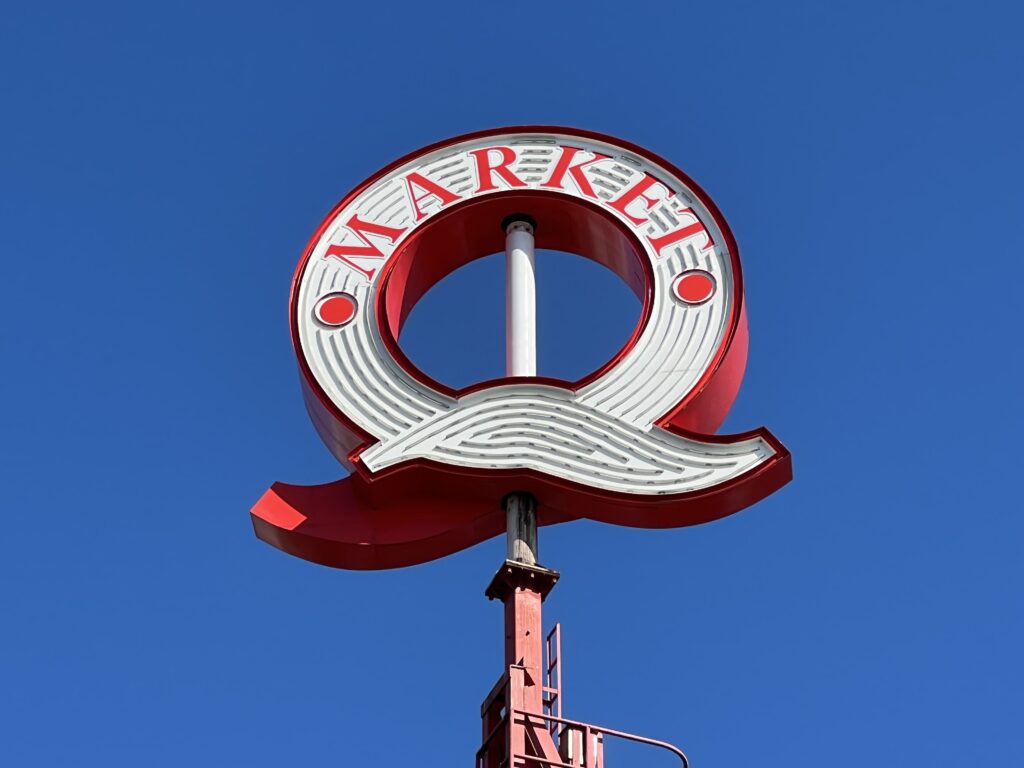
Lonsdale Quay in North Vancouver (Mackin)
BCLC has detected a decline at casinos in the average spend per player and softness in online gambling revenue.
BCLC counted $440 million in internet gambling revenue in 2022-2023, but is experiencing headwinds due to aggressive marketing and acquisition by illegal operators. That means higher costs of advertising and sponsorship for BCLC, the province’s legislated monopoly.
“We continue to work with appropriate authorities to try and address illegal online gambling, and the opportunity to potentially capture additional revenue if illegal operators were kept out of B.C.” it said.
The service plan mentioned the influx of advertising from Ontario, which began licensing privately operated online gambling companies in 2022.
“This blurs the line between those sites and provincially regulated gambling sites, like PlayNow.com, that create revenue and jobs for their respective provinces.”
Meanwhile, BCLC says that there were 4,148 reports of criminal activity at casinos in 2022-2023. It forecast 4,023 for the current fiscal year and its target for next year is 3,822.
“Examples of such incidents include allegations of cheating at play, theft, assault and money laundering.”
Liquor Distribution Branch
The province’s beer, wine, spirits and marijuana retailer and wholesaler projects a $1.1 billion profit next year.
LDB operates 198 BC Liquor and 39 BC Cannabis stores. It forecast $1,472 booze sales per square foot for the year ending March 31, missing the target by $25 per square foot.
“This slight target shortfall can be attributed to decreased foot traffic, influenced by high inflation rates, and shifting trends in alcohol consumption,” said LDB’s service plan.
For cannabis sales, LDB expects to meet its $800 per square foot sales target. That target remains fixed at $800 for the coming year, “given the anticipated persistence of competition from the illicit market and the continued entry of new private cannabis retailers into the market.”
It also said the average price per gram of marijuana is expected to fall as the industry matures.
BC Hydro
The province’s electric company is targeting $712 million annual net income, but weather trends are weighing on its mind.
“Given the current drought situation, and the large variability that has been seen in system inflows in the past, actual hydro generation may be significantly different from shown and, as a result, the cost of energy may be higher due to imports in times of deficit, and lower due to exports in times of surpluses,” said the BC Hydro service plan. “These changes would affect the cost of energy and financial performance.”
Its biggest project, the Site C dam, is expected to cost at or below the approved $16 billion budget, with the first power unit targeted for December of this year and last unit in November 2025.
As of Dec. 31, BC Hydro had spent $12.9 billion, with another $3.1 billion to go.
Premier David Eby recently announced an aggressive $36 billion “Power Pathway” capital upgrade program running through 2023-2024.
“BC Hydro’s electricity system was largely built in the 1960s, 1970s, and 1980s and B.C.’s population and economy continue to grow,” said the service plan.
Support theBreaker.news for as low as $2 a month on Patreon. Find out how. Click here.






